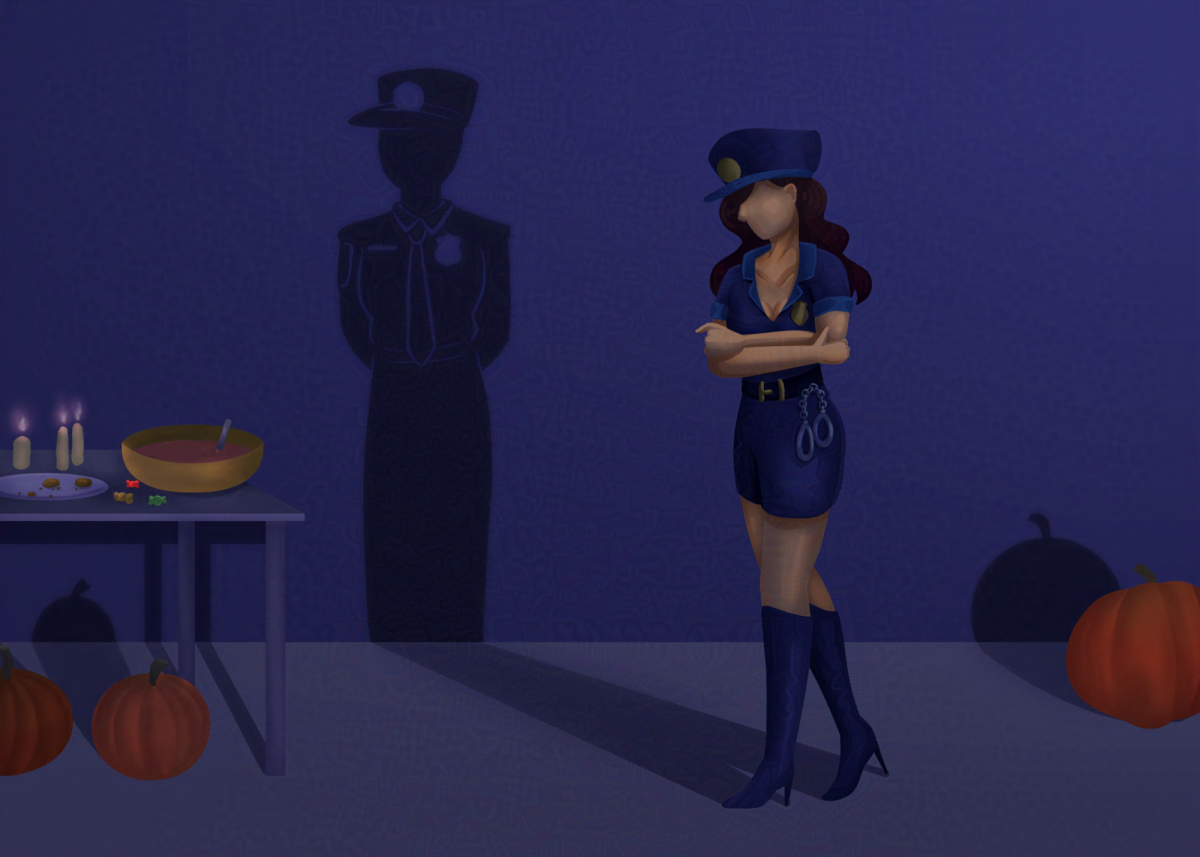Breakups are bittersweet and painful. People are constantly reminded of past relationships when browsing through their smartphones. Memories and the happy times once shared with their exes are plastered across social media accounts, glaring at them.
College breakups are the worst. Everyone seems to know everyone on campus, and one’s circle of friends changes from semester to semester. In the Internet age of social media, alleviating the pain of a breakup is time consuming. However, count yourself lucky if all you’re left with are the memories of better days on your social media accounts. There are people who are left scarred after a breakup and it’s not only because of a broken heart, but from pure humiliation from the invasion of privacy caused by “revenge porn.”
Revenge porn is the illegal sharing of explicit, lewd images that consist of nudity or intimate pictures of an individual without his or her consent. Revenge porn has dire consequences for the social lives of victims. This coincides with sexting, as it’s highly possible for sensitive content shared via text messaging to be leaked on the Web. College students are susceptible to this type of cyber bullying, and it increases as students continue to share and document every waking moment of their lives.
This braggadocian behavior isn’t the problem and college students should document and share as they wish. However, if the sharing of content is infringing upon an individual’s privacy it should be punishable by law. California’s anti-revenge porn law, Senate Bill 255, was signed on Oct. 1, making revenge porn a misdemeanor in California.
What’s shocking is that this isn’t a federal law, and it’s bothersome to know that California is one of only two states that has a specified revenge porn legislation in the U.S. New Jersey has had an invasion of privacy legislation against revenge porn since 2004. States should have addressed this issue beforehand and not waited until 2013 to take initiative.
Although it sounds reasonable that revenge porn should be illegal, critics are saying SB 255 infringes upon a person’s First Amendment rights. The law is still in the early stages of development and the wording does need to be addressed. However, to say that it infringes upon an individual’s freedom of speech is a slap in the face to the victims. Here we go again, blaming the victims for sending their intimate photos and shaming them when that has nothing to do with the problem. We have to be more than social media consumers and think of the rights we are losing online.
Concerns regarding free speech and protecting an individual’s privacy rights point out that the bill is flawed. People shouldn’t have the right to post lewd images of another without their consent. This isn’t a 21st century issue that is new to people. As consumers of social media, we should also demand protections from social media providers. College students may think privacy settings on social media accounts are enough to protect them from these violations, but they’re wrong.
Although privacy settings will protect one’s information, nothing can protect them from that one intimate image they shared with an ex-lover one Saturday night. Remember that.
As students, we should be grateful that California has taken initiatives to punish the perpetrators of revenge porn. Those who are convicted will serve up to six months in jail and pay a $1,000 fine. This bill has one devious condition that will not answer all the problems against revenge porn, especially if the victim was the one that took the leaked pictures. SB 255 pertains only to victims who were violated by individuals who took the explicit images and shared them. If the victim was the one who created the image, the bill wouldn’t apply. This law is addressing an important issue. However, those who didn’t apply to the bill’s regulations are left empty-handed. The Cyber Civil Rights Initiative Inc. founder Holly Jacobs, a victim of revenge porn, agrees that SB 255 is a great start to address this issue, but there needs to be a law that covers individuals left out of the existing bill.
“This issue will only get bigger and the laws will catch up with technology when the public decides it has seen enough tragedy as a result of revenge porn. Our goal is to convince people that revenge porn is wrong today,” Jacobs said in a CCRI press release.
According to a CCRI survey, up to 80 percent of individuals victimized by revenge porn aren’t protected by the bill. With these numbers, it’s hard for legislators to dismiss this issue.
“We are really hoping that Congress moves on this sooner, because then you’re going to protect the majority of victims all at once,” University of Miami law professor Mary Anne Franks told the Washington Post.
Harassment comes in all forms and it now has pixilated itself online. College students should familiarize themselves with CCRI and read its mission statement as it tries to battle the injustices occurring online. Misinformed students shouldn’t think this couldn’t ever happen to them.
If you’re a victim of revenge porn, it’s never too late to take action. There are tools and organizations such as CCRI that are available for assistance. Revenge porn is a civil rights issue that needs to be addressed as harassment and oppression continue to appear online. People may think revenge porn only applies to individuals between the ages of 18 to 34, but this applies to all ages. This ignorance will lead people into believing they’re not vulnerable to revenge porn. The person you trusted and cared for could be the person who ruins your life.






